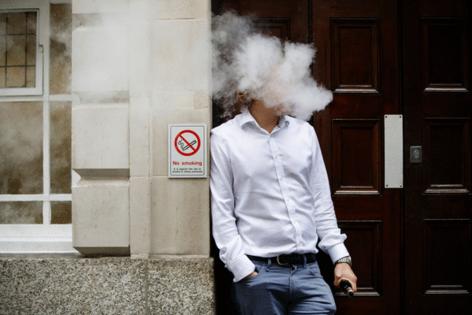Study finds 'invisible threat' to kids from secondhand vape exposure
Published in News & Features
ATLANTA — Disrupting dopamine levels and causing inflammation, oxidative stress and cellular damage, secondhand vape exposure can significantly damage a child, potentially even contributing to diabetes, heart disease and cancer. That’s according to a recent study by Atlanta-based Emory University.
Vaping is less harmful than smoking, but it’s still not safe. In 2020, the Atlanta-based Centers for Disease Control and Prevention confirmed 2,807 cases of lung injury related to electronic cigarette or vaping use. Those injuries contributed to 68 deaths.
Michael Blaha, M.D., M.P.H., director of clinical research at the Johns Hopkins Ciccarone Center for the Prevention of Heart Disease, reported that most of those cases affected people who modified their vapes or used black market e-liquids, especially with THC.
According to Emory’s Nell Hodgson Woodruff School of Nursing and the Rollins School of Public Health, vaping is also causing damage another way. Children living in households where e-cigarettes are used are inhaling substances harmful to their developing bodies.
“Many people who smoke have switched to using e-cigarettes, thinking it’s safer for them and others nearby,” Jeannie Rodriguez, PhD, RN, associate professor at Emory’s School of Nursing and lead author of the study, said in a news release. “However, there are chemicals in the liquids used in a vape that are hazardous for you and those that you care about who are exposed to the vapors you exhale.”
The Emory schools implemented a study using data from blood, saliva and exhaled breath tests to determine how secondhand vape exposure affected children 4-12. They were found to have significantly higher levels of metabolites linked to chemicals found in e-cigarette liquids, leading the researchers to call secondhand vape exposure a lurking “invisible threat.”
“If you do vape and are ready to quit, talk to your health care provider and your family and friends,” Rodriguez said. “You may need the support of those around you to be successful. Think of past attempts to quit not as failures, but as training opportunities for you to eventually successfully quit. Don’t give up.”
_____
©2024 The Atlanta Journal-Constitution. Visit at ajc.com. Distributed by Tribune Content Agency, LLC.







Comments